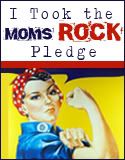Certain foods and drinks can make allergy symptoms worse – or better.
Imagine your doctor giving you this prescription for your nasal allergies or hay fever: “Eat some grapes and call me in the morning.” Well, it’s not that far-fetched.
Just as the right grade of gas helps your car run well, the right diet for allergies is important to help you feel your best.
A healthy diet for allergies or hay fever protects you in many ways. It helps keep your respiratory system strong. Many foods can help you breathe better because they open up clogged nasal passages. A nutritious diet also boosts your immunity to allergies. Certain foods have nutrients that can help boost your immunity and help your body fight sinus and respiratory infections, which are linked to allergies and hay fever.
The Link Between Diet and Allergies
Let’s take a short trip to the island of Crete. While skin allergies are common here, nasal allergies and wheezing are rare. Why?
From childhood on, the bulk of the Crete islanders’ diet consists of fresh fruits and vegetables, fish, olive oil, and nuts. The natural foods in the Mediterranean diet are high in antioxidants. Antioxidants protect cells from the oxidative damage that causes diseases, and they have immune-boosting compounds.
In a study published in the journal Thorax, researchers found that Crete islanders who ate a Mediterranean diet had fewer allergies. They noted that diet staples such as nuts, grapes, oranges, apples, and fresh tomatoes were protective against allergies.
The researchers also reported that eating margarine increased the risk of allergies and wheezing. This is because margarine is made with unhealthy fat that boosts inflammation.
How 3 Foods Fight Allergies
Here’s how the anti-inflammatory properties of some typical foods on the Mediterranean diet protect against allergies.
* Nuts. These are a great source of magnesium and vitamin E. Studies show that magnesium helps increase lung function and may also protect against wheezing in patients with asthma, which causes inflammation of the lungs. Vitamin E is an immune booster and has been shown to reduce the risk of upper respiratory infections, especially the common cold. As an antioxidant, Vitamin E protects the body from damaging free radicals. Free radicals can cause oxidative tissue damage, which triggers inflammation and problems like allergies and asthma.
* Apples, Oranges, and Tomatoes. These three fruits are super sources of another antioxidant, vitamin C. Researchers found that they gave protection against allergies and asthma in the Crete diet study. This is important because nearly half of people with asthma also have allergies.
* Grapes. The skins of red grapes in particular are filled with antioxidants and resveratrol, which reduces inflammation in the body. The Crete diet study found that grapes gave protection against both allergies and wheezing.
Eating Fish to Reduce Allergies
The omega-3 fatty acids DHA and EPA, found in cold-water fish, algae sources, and supplements, are touted for decreasing inflammation in the body. According to “America’s Pediatrician” William Sears, MD, this protects against allergies.
In his forthcoming book, MEG, which tells about the benefits of omega-3 fatty acids, Sears writes that kids and adults with allergies and asthma are some of the most common “i-Bods.” An i-Bod is “a person who is full of excessive inflammation,” says Sears, an associate clinical professor of pediatrics at the University of California, Irvine, School of Medicine.
His advice? Go fish. Wild salmon, mackerel, trout, herring, sardines, and albacore tuna are good sources of marine omega-3 fatty acids. If you don’t eat fish, consider fish oil or omega-3 and algae supplements.
Can Breakfast in Bed Reduce Allergies?
Murray Grossan, MD, a board-certified otolaryngologist at Cedars Sinai Medical Center in Los Angeles and co-author of The Sinus Cure, offers this cozy treatment for sinus sufferers: “I tell allergy patients to have breakfast in bed,” he says.
Grossan’s advice relates to nasal cilia -- tiny hairs in your nose that sweep pollen and dust out of the passages. When nasal cilia are healthy, mucus flows naturally. But when cilia slow down with allergies or hay fever, you get all stuffed up.
Drinking hot tea with lemon and honey first thing in the morning activates movement of the nasal cilia, which helps prevent early morning sneezing with allergies or hay fever. Blocking the “sneezing cascade,” reduces the need for allergy medicine, Grossan tells WebMD. Herbs such as “fenugreek, fennel, anise, or sage” may stimulate nasal cilia even more, another diet boost for allergies.
Green, white, and black teas are also full of flavonoids -- plant compounds that reduce inflammation. Tea also boosts immunity by increasing proteins in the body that fight infection.
Zinc: Allergy Relief at the Oyster Bar
Oysters, lean beef, shrimp, crab, legumes, whole grains, and tofu are high in zinc. Zinc has an antibacterial and antiviral effect in the body and fosters immunity. The body may be unable to fight infection without sufficient supplies of zinc.
Foods That May Help or Hurt Allergies
Spicy foods can thin mucus and ease allergy congestion, but they can also irritate the throat, resulting in excess mucus and cough. Some people are allergic to these three foods, so Grossan advises caution when trying them out:
* Cajun spice. Made with cayenne peppers, Cajun spice is like a natural nasal decongestant for some because the peppers contain capsaicin, which stimulates nerve fibers.
* Garlic. This herb may help make mucus less sticky.
* Horseradish. The root of this plant contains a chemical similar to the one in decongestants.
Does Milk Make Mucus Worse?
Many people with allergies eliminate milk from their diet. They complain that milk makes them have more mucus or makes mucus thicker and harder to expel. But allergist Patrick H. Win, MD, president and director of the Allergy, Asthma & Immunology Center in Shiloh, Ill., tells WebMD, ”There is really no good data to support this.”
In other words, milk still does a body good -- even with allergies and hay fever.
Wednesday, June 17, 2009
The Best Diet for Allergies and Hay Fever
Posted by Lagean Ellis at Wednesday, June 17, 2009
Subscribe to:
Post Comments (Atom)




























1 comments:
Luckily, I have never had allergies nor hay fever.. AND--none of my kids have either. My eldest had Asthma as a child--but he outgrew it...
Great info for families with kids with allergy problems.
Hugs,
Betsy
Post a Comment